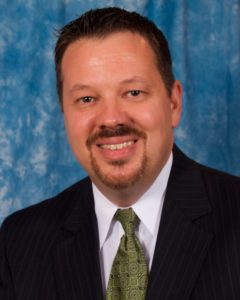By Larry Robertson
Pastor, Hilldale Baptist Church, Clarksville
I love to hear Shakespeare filtered through the story-telling flair of Andy Griffith. In his rendition of Romeo and Juliet, he paused to explain the meaning of a soliloquy. He said, “A soliloquy is where you kinda look a way off and kinda talk to yourself. They used to do that a whole lot back then …”
Honestly — and I’m a little embarrassed to admit this to you — I learned the meaning of soliloquy from Andy Griffith. But, hey, I’ve never forgotten it!
As a preacher, I need to ask myself every time I preach whether I’m giving a sermon or a soliloquy. Am I talking to someone or to no one? Do I envision an audience on the other end of my words or do I “kinda look a way off and kinda talk to” myself?
Frank Pollard, longtime pastor of First Baptist Church of Jackson, Miss., was a phenomenal preacher but not just because of his oratory skills. His ability to apply the Scriptures was extraordinary. I heard him explain, though, how the application component of his sermons was hardly accidental. I’ve often reflected upon his counsel and attempted feebly to imitate him.
 Dr. Pollard explained that as he prepared his sermons, he imagined how certain people in the congregation might hear a particular biblical truth. For instance, “how would the recent widow hear these words? How would the teenager struggling to fit in with her peers hear these words? How would the married couple drifting in their marriage hear these words? How would a child hear these words? How would a lost person hear these words?” He would put faces and sometimes names to these questions, imagining where they might sit in the sanctuary.
Dr. Pollard explained that as he prepared his sermons, he imagined how certain people in the congregation might hear a particular biblical truth. For instance, “how would the recent widow hear these words? How would the teenager struggling to fit in with her peers hear these words? How would the married couple drifting in their marriage hear these words? How would a child hear these words? How would a lost person hear these words?” He would put faces and sometimes names to these questions, imagining where they might sit in the sanctuary.
He was not suggesting, nor am I, that we preach “at” people; we should preach “to” people. Or perhaps the case should be made for preaching “with” people. The apostle Paul advocated including ourselves among those who need to hear the message when he wrote in Romans 2:21-23, “Well then, if you teach others, why don’t you teach yourself? You tell others not to steal, but do you steal? You say it is wrong to commit adultery, but do you commit adultery? You condemn idolatry, but do you use items stolen from pagan temples? You are so proud of knowing the law, but you dishonor God by breaking it.”
Faithful preaching includes explanation of the biblical text but also application that is driven by the text. So, speculating on which of those is more important in a sermon makes about as much sense as arguing over which wing of an airplane is more important. In fact, why doesn’t the preacher who says, “I don’t need to apply the text; the Holy Spirit will do that,” just go ahead and say, “I don’t need to explain the text; the Holy Spirit will do that”? Of course, that’s never going to happen. And it’s not even biblical.
In the Great Commission, Jesus commanded us to “make disciples,” and one of the ways we do that is by “teaching them to observe (or obey) all that I commanded you.” We teach for transformation, not just information. And while it’s true that the Holy Spirit is the One who applies the truth of Scripture, He often uses the preacher as His vessel.
So, pray that God’s timeless Word will be a timely word for someone every time you preach. “And, Lord, let it begin in me.”

